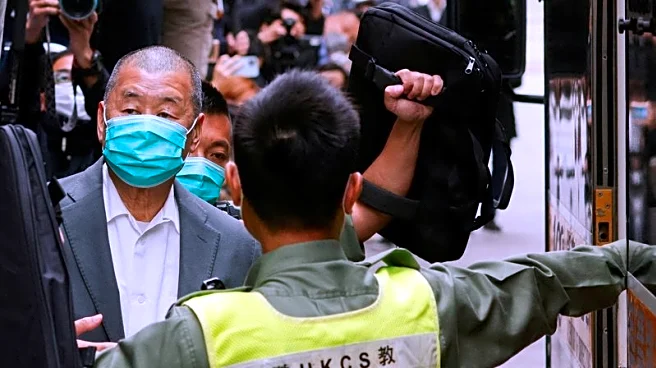Rapid Read • 8 min read
The Government Accountability Office (GAO) has determined that the Department of Homeland Security's (DHS) recent layoffs do not violate federal spending laws. This ruling comes as part of the Trump administration's efforts to reduce the federal workforce. The GAO found that the layoffs at DHS's Office of Civil Rights and Civil Liberties, Office of the Citizenship and Immigration Services Ombudsman, and Office of the Immigration Detention Ombudsman did not breach the 1974 Impoundment Control Act. The GAO clarified that reductions in force (RIFs) aimed at achieving budgetary savings are permissible as long as any net savings are offset by other allowable expenses. DHS officials have stated they are continuing to expend their full appropriation for the impacted offices for fiscal 2025, which GAO said seemed to be supported by the documents it has reviewed.
AD
This ruling is significant as it clears the Trump administration of potential legal issues related to workforce reductions. The decision underscores the administration's ability to implement budgetary savings without violating federal statutes. However, the GAO also found that the Energy Department violated the Impoundment Control Act by delaying disbursements under the Renew America's Schools program, highlighting ongoing tensions between the administration and the GAO. The ruling may impact how federal agencies approach budget cuts and workforce management, potentially influencing future policy decisions and administrative strategies.
The Trump administration is expected to continue its efforts to reduce federal spending, including potential further workforce reductions. The GAO's findings may lead to increased scrutiny of agency budgetary practices and impoundment issues. The administration may face challenges in balancing policy objectives with legal compliance, particularly in areas where funding is withheld for policy reasons. Stakeholders, including lawmakers and federal employees, may respond to these developments with calls for greater transparency and accountability in federal spending practices.
The GAO's ruling highlights the complex interplay between executive actions and legislative oversight in federal spending. The decision may prompt discussions on the ethical implications of workforce reductions and the prioritization of policy objectives over employee welfare. Long-term shifts in federal workforce management and budgetary practices could emerge as agencies navigate the legal and operational challenges posed by impoundment laws.
AD
More Stories You Might Enjoy












